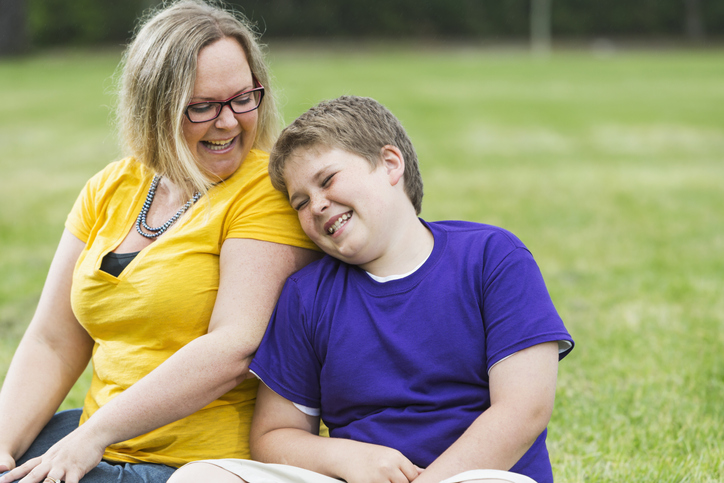
Even without diabetes in the picture, the teen years are challenging and difficult.
As a registered dietitian, certified diabetes care and education specialist, and mother of three young adults, I empathize with the worries, fears and concerns some of you have about your children’s health. Body changes, hormonal fluctuations, and social/cultural pressures to fit in can be overwhelming. We do know that using fear of health issues typically doesn’t motivate children and teens to change their habits, and restriction of any food can lead to rebellion, overeating, stress eating, being dissociated with hunger/fullness signals, and in some cases eating disorders. It is normal for children and adolescents (both boys and girls) to be concerned with body changes. BMI (body mass index) must be put into context appropriately – weight is a pull of gravity and we must consider body composition such as lean body mass, hydration, and fat tissue, which is increased at this age in young women. Genetics and growth patterns play an important role as well.
Parents can feel guilty about everything!
Please don’t blame yourself if your child has been diagnosed with diabetes or prediabetes; this is not your fault. As mentioned, body shape, size, environmental influences, and genetics are powerful influences, and you are most likely doing the very best you can.
The “black and white”, “all or nothing”, “good and bad” foods culture is actually quite harmful. Eating food should be a positive, relaxing and satisfying experience for anyone, diabetes or not. Preferred, enjoyable food can fit in to a healthful eating plan. This is where meeting with a registered dietitian/nutritionist and certified diabetes care and education specialist who also works with eating disorders/disordered eating can help a great deal. He or she can help restore a positive relationship with food for sustainable health, not only in bloodwork numbers and medical status, but also so your son or daughter can be resilient, strong and more easily adaptable to the changes we all go through in life.
As the parent and the responsible party in your family, it’s important to consider what is referred to as the “division of responsibility” when it comes to food and eating.
If you are the one responsible for bringing food and beverages into your home, you can decide what those choices are. Many factors influence this, including budget, food access and security, cultural preferences, food storage, cooking/shopping time and cooking skills. There is no one perfect way to eat, but a pattern of regular meals and snacks (as opposed to chaotic eating patterns) with a variety of healthy food choices including water or milk for most beverages, will be supportive of health. And healthy food choices do not need to be complicated or costly! “Fun food” or “play food” (as opposed to the negative term of “junk food”) can be incorporated as well in a healthful part of the diet. As we have learned over and over, restriction and food shaming often lead to overeating and a dysfunctional relationship with food.
Household rules, which are also important for everyone’s safety and well-being, include not just what food is available to choose from (you decide what you bring into your home), but also how food is eaten. I most often recommend food be consumed in 1 or 2 areas of the home, specifically designated for eating such as a dining room and/or kitchen table, and not in front of television, computers, or in bedrooms. Eating in a distracted way is like texting while driving, which can dysregulate normal signals of fullness and true hunger.
Medication and Other Treatment Options
Reviewing medications with an endocrinologist/primary care and/or pediatric MD is also important, as there may be some options that can also be supportive of blood sugar management and healthful weight. Consider appropriate limits on screen time, sleep habits, stress management options and social media influences.
Seeking assistance from a mental health professional can be invaluable, and I have seen this do wonders for children, teens and adult patients. Our children’s sadness is important and real, and parents need support as well to help children through this. Unfortunately, weight shaming and stigma is a very strong part of our culture and health care. I see firsthand the damage it does. We can meet health goals in a weight-neutral way without causing more shame and guilt, which is not medicine.
Additional Resources
I often recommend books that address this issue from highly respected colleagues. Many registered dietitians and diabetes care and education specialists, including myself, are now providing individual medical nutrition therapy and diet counseling online which may be an option. https://www.diabeteseducator.org/living-with-diabetes is also a resource link to find diabetes programs in your area. Two other excellent resources that I highly recommend:
- The Ellyn Satter Institute
- The Intuitive Eating Workbook for Teens by Elyse Resch RDN
All of the above is much easier said than done. There are often many more influences on food and eating choices than is obvious to most healthcare providers. Your concerns do deserve further medical, nutrition and psychological support, especially in this incredibly overwhelming time of isolation and health concerns for all.
Your children and teens are likely very interested in feeling well and being accepted but again, trying to motivate by fear and shame does not work. Some children and teens may be possibly most helped with a referral to a program or resources that work with eating disorders or disordered eating, as dieting and restricting can do further harm which can escalate problems.
National Eating Disorders is another resource that may be helpful.
I look forward to more of your questions and inquiries and am very honored to be able to support you on behalf of Taking Control Of Your Diabetes. I am happy to give you more resources if you would like to contact me directly at jbaker9@gmail.com.


Leave a Reply